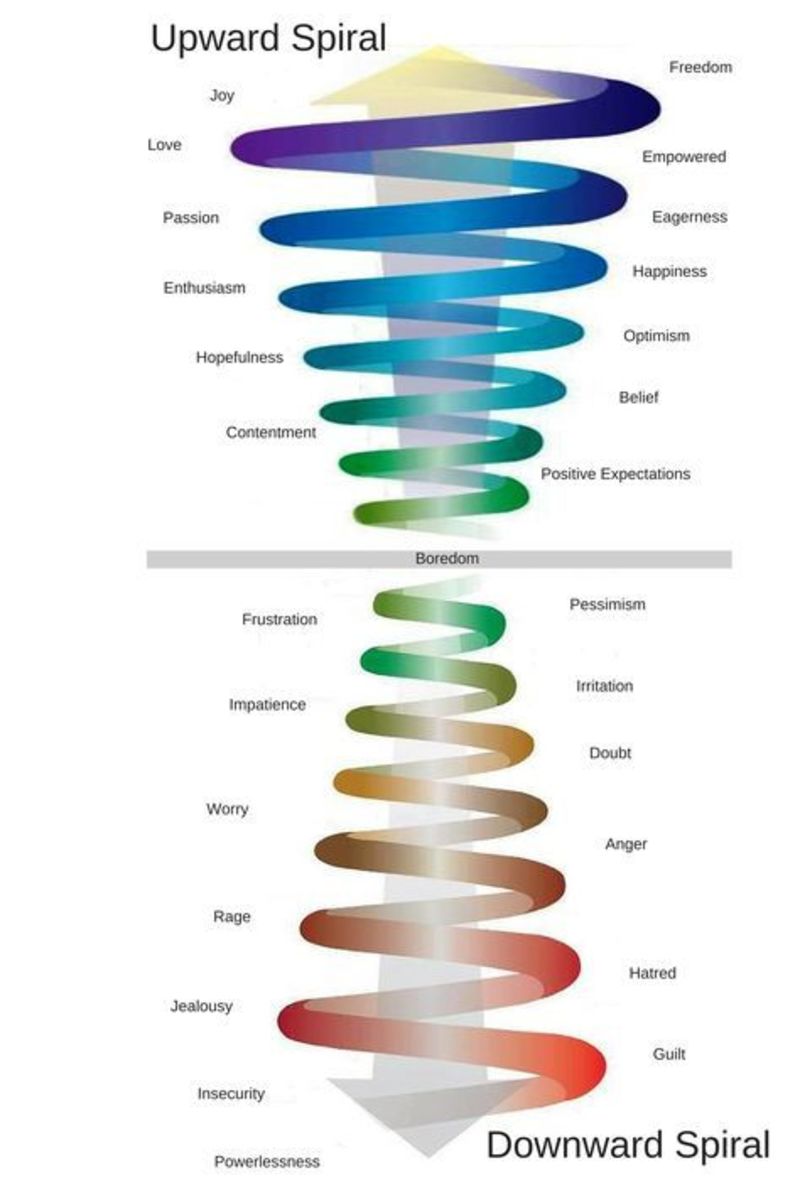Dealing with Difficult People - Part 3

Strategies and Language to Use for Dealing with Difficult People - the Calamity Chicken Little, Pleasant Puppy and Uncommunicative Clam
This is the third article on Dealing with Difficult People. The bad news is - you cannot change other people. The good news is - you can change the way you react to them. Use the strategies and language I suggest and difficult people may begin to learn new behaviors in order to deal with you.
Here are three more types of normal people acting difficult:
The Calamity Chicken Little
How can you tell that you are dealing with a difficult and negative Calamity Chicken Little? Their entire philosophy of life is built on the belief that the sky is falling, the sky is falling.
Listen to their language. Chicken Little often says, "That won't work." If you protest, "How do you know that won't work?" you may hear something like, "Because it's obvious." You might reply, "Obvious to whom?" Their response: "To any intelligent person." If you say, "It is not obvious to me," you are likely to hear, "Well, what does that say about you?"
Why do perpetually negative people act this way? Their behavior is based on their belief that other people do not care and are indifferent or self-serving. So any task that is not the Chicken Little's responsibility is doomed to fail. They are more deadly to the morale of the team than a speeding bullet, and have the ability to defeat a big idea with a single syllable. They fight a never-ending battle for futility, hopelessness and despair. Murphy's Law is their slogan - If anything can go wrong, without a doubt, it most definitely, absolutely will.
What is their motivation for this type of behavior? Calamity Chicken Littles are convinced that they have very little power over their lives, and that those who have power can not be trusted. As children, they may have been unable to reconcile their disappointment that their parents or guardians were not perfect people, only fallible human beings.
How should you deal with this difficult person? Strategies and language to use:
• Do not be drawn into their despair. Misery loves company.
• Express your realistic optimism. Say, "I don't think we've tried everything."
• Do not try to argue them out of their negativism.
• Calmly and without emotion, discuss the problem. "What is the worst thing that could happen?"
• When an alternative solution is being proposed, raise the question yourself of negative events that may occur before Chicken Little does. "That may not work either but it's worth a try."
• Be prepared to solve the issue yourself and announce your plans to do so. "I'm willing to write the proposal myself, but I do need your help. But I'll do it myself if I have to."
Do not create a Calamity Chicken Little by asking analytical people to act before they feel ready. Example: If you say, "Make the phone calls. I'll explain it all to you later," you may be responsible for creating a Chicken Little if that person is very cautious or methodical.

The Pleasant Puppy
How will you know you are dealing with a Pleasant Puppy? This type of difficult person has a very pleasant and agreeable demeanor, but you need to listen carefully to the language they are using. Ask the Puppy to do something and he or she will likely respond, “I’ll finish that for you. Want that done? No problem. No problem at all. Need that dropped off? OK. Like that mailed at the post office? Sure, can do. You need it by 5pm Friday? No sweat.”
The behavior of these Pleasant Puppies is super agreeable and they generally tell you just what you want to hear. They let you believe they are in agreement with you and then later let you down by not following through. To please others and avoid any kind of confrontation which they hate, they say “yes” without thinking things through and often will over-commit.
What is their motivation for this type of behavior? Basically, they have an overwhelming need for approval – to be liked or at least accepted by everyone all of the time. To avoid disapproval, they will commit themselves to actions and responsibilities they do not intend to fulfill. They accept unrealistic demands, saying "yes" when they need to say "no", or at the very least, "but". They promise deadlines that can not be met, and pledge to "do their best". They may keep problems to themselves and often play it safe to avoid any risks. At worst, they turn into "yes people" who tell you what they think you want to hear, rather than what they really believe.
How should you deal with this difficult person? Strategies and language to use:
• Request an honest opinion from them. Say, “I really want to know what’s on your mind.”
• Make it clear that their honest opinion or criticism will not displease you. “Tell me – what part of the proposal do you think should be modified?”
• Be personable and try not to be too formal when you can. Show them that you see them as people in whom you are interested.
• Try to prevent them from making unrealistic commitments they won’t keep. “Will that be a problem for you? Some people prefer to . . . ”
• Be prepared to compromise and negotiate in order to avoid conflict. “I’m willing to go along with . . . if that will help.”
• Listen to their humor. Often it masks a hidden message. If a Pleasant Puppy says, “Here’s Mrs. Expert again.” You might respond: “I’ve been wondering about your calling me that. Is there something I’m doing that gets in the way?”
In my experience, too-pleasant and too-eager-to-please people may have difficulty being more assertive because that involves taking a risk. Their passive behavior allows them to avoid conflict by trying to always please others. If you manage a “Pleasant Puppy,” try to help that person to develop more assertive behavior skills.

The Uncommunicative Clam
How can you tell that you are dealing with an Uncommunicative Clam? Simple. Silence prevails. You will be doing most of the talking if you plan on communicating. The Clam may be one of the most difficult of the difficult types of people you will encounter in business and life.
Clams are typically super-quiet and unresponsive - they just won't talk. When you ask them questions, their responses are often, "Yep" or "Nope," a grunt, or no response at all. Because of their silent style, it may be difficult to understand what their lack of response or persistent silence really means.
What is their motivation for this type of behavior? Silence is usually frustrating to other people, so the motive might be calculated passive aggression. Or a noncommittal way of handling stressful situations. You will do all the talking or leave. Or it's a method of evading the facts and sublimating their feelings. They may feel it is more expedient to keep their thoughts unspoken.
How should you deal with this difficult person? Strategies and language to use:
• Ask open-ended questions that require answers with more than a Yes or a No or a number.
• Use a friendly, silent stare which involves an expectant expression, a slight smile, eyebrows raised and eyes wide open.
• Do not fill the silence, if possible, with your conversation. Use what I like to label, "the pregnant pause."
• If they remain silent, comment on what is happening. "I expected you to say something and you haven't - what does that mean?" End your comment with an open-ended question.
• Wait about ten seconds (count one one-thousand, two one-thousand silently to yourself up to ten). Then comment again and wait. You might say, "I'm waiting for your reaction and you're silent. How do we get out of this bind?" - the open-ended question again.
• If the Clam says, "Can I go now," respond: "Not yet, I still have some things on my mind."
• If the Clam says, "I don't know," to your questions, say, "What else can you tell me?" Stay expectant and wait. If there is still no response, use the friendly stare, wait and finally comment, "This meeting seems to be at an impasse."
• Ask, "Am I wrong to believe that you are feeling uncomfortable?" or "irritated" or "annoyed" or "angry"? Pause. "Well if you are not . . . what is the problem?"
• If there is still no response, end the meeting and set another definite date to meet.
• If the Clam remains silent, end with an assumption and your plan for moving forward: "I assume your silence means that you agree . . .." and indicate the steps you will be taking.
I’ve now discussed the Bellowing Bull, Sly, Sneaky Snake, Grenade Gorilla, Genuine Know-It-Owl, Bogus Know-It-Owl, Calamity Chicken Little, Pleasant Puppy and Uncommunicative Clam. See links below for Difficult People – Part 4 discussing the two remaining types of difficult persons: the Complaining Crocodile and Compromising Chameleon.
© Copyright BJ Rakow Ph.D. 2010, 2011. All rights reserved Author, Much of What You Know about Job Search Just Ain't So
You may also enjoy my Hub: Take the PIG Personality Test and the five Hubs on Dumb Crazy Stupid Laws.




